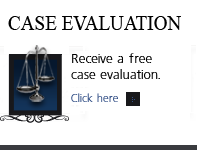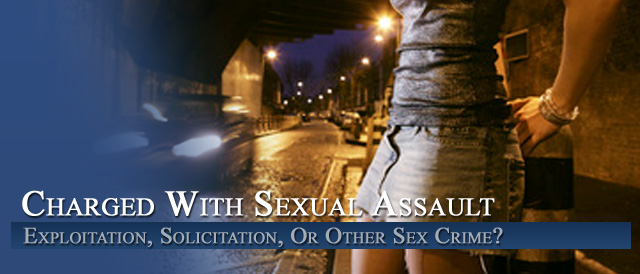
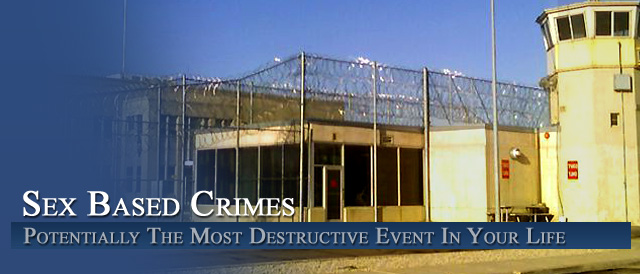
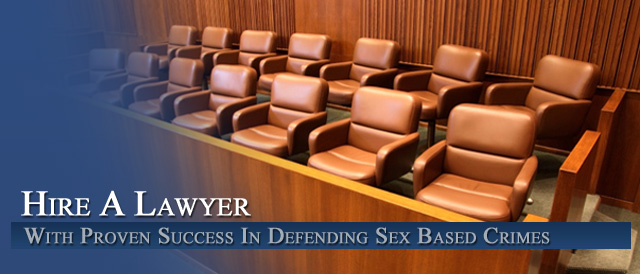
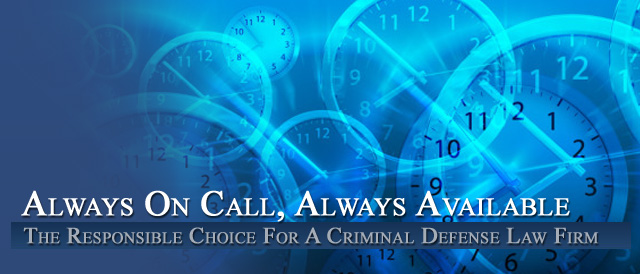

Colorado Sex Crimes – Criminal Liability for Failure to Protect a Child
Question: Can A Parent – or Significant Other Be Held Criminally Responsible If They Do Not Intervene Where A Child is Being Abused?
Here is an extreme example of criminal liability for failure to protect a child in the state of Vermont:
Williston woman sentenced for failing to stop sex abuse
Cherie Hyde could barely say a word through her tears as she was about to be sentenced for what prosecutors say are unspeakable crimes.
“And if I could turn back the clock, I would,” Hyde said, “but I can’t.”
Hyde pled guilty to allowing men to sexually assault a female child in her Williston home for several years– sometimes even walking in on the abuse but doing nothing to stop it. A relative of the teenage victim took Hyde to task for making comments she was hurt by the crimes, too.
“For you to even consider yourself a victim or to try to pretend you’re a victim is disgusting. It’s another shining example of how manipulative, selfish, and deceiving you can be,” the woman read from a prepared statement.
“This case is sadly, a compilation of tragedy,” said Bill Norful, Hyde’s lawyer.
Norful asked the court for leniency, saying his client suffers from anxiety and post-traumatic stress disorder. But Vt. District Court Judge Michael Kupersmith said he refused to go easy on anyone who knowingly allowed sex abuse.
“This was simply horrendous,” the judge said.
Judge Kupersmith told a tearful Cherie Hyde he sometimes wishes anyone caring for a child as she was supposed to be needed a license proving they’d protect the kids.
“If we did, your license should be revoked permanently. You should never become a parent again or be in charge of a child again. This was an unspeakable offense,” he said.
Cherie Hyde wailed as she left the court to begin serving her 2- to 10-year prison sentence. Prosecutors hope the sentence sends a clear message that Vermont takes child sex abuse seriously.
“Children who are abused in the state of Vermont often know their abuser. And I think it’s high time that we start holding these people who allow this to happen, as Ms. Hyde did, who turn a blind eye and a cold shoulder, we need to hold them accountable, and I think that’s the first step to truly preventing this type of abuse,” Chittenden County Prosecutor T.J. Donovan said.
Judge Kupersmith said he felt Cherie Hyde actually deserved more jail time than she got, but the plea deal that gave her 2 to 10 years also saved the victim from testifying at trial.
The victim was in court and put on a really brave face. She spoke to WCAX News briefly after the sentencing and said she’s glad to now be in a wonderful home with people she knows love her and protect her. She and her family said they believe this girl can have a healthy and happy adulthood.
Two men who abused the girl are currently serving prison sentences.
There are two general theories that a prosecutor might use to charge a person under these circumstances:
Negligent Supervision: This is when someone puts a child, or fails to remove a child, from a place where a reasonable person would know that care and caution are required because the child is not mature enough to make those judgments for him/herself. The result is bodily injury or a substantial risk of immediate harm to the child..
Failure to Protect: This happens when a person knowingly allows another to abuse a child but fails to try to stop the abuse even though that person is able to stop it and knows, or should have known, about the abuse.
The intersection of Colorado’s Sex Offender Laws and Child Abuse Laws is complex. To understand whether a parent or guardian can be charged with child abuse for failure to protect a child is addressed in this webpage.
Colorado’s “Child Abuse and Neglect Laws
First one must study Colorado’s Children’s Code to understand Colorado’s Child Abuse Laws:
Colorado Children’s Code (Title 19) 19-1-103 Definitions
As used in this title or in the specified portion of this title, unless the context otherwise requires:
(1) (a) “Abuse” or “child abuse or neglect”, as used in part 3 of article 3 of this title, means an act or omission in one of the following categories that threatens the health or welfare of a child:
(I) Any case in which a child exhibits evidence of skin bruising, bleeding, malnutrition, failure to thrive, burns, fracture of any bone, subdural hematoma, soft tissue swelling, or death and either:
Such condition or death is not justifiably explained; the history given concerning such condition is at variance with the degree or type of such condition or death; or the circumstances indicate that such condition may not be the product or an accidental occurrence;
(II) Any case in which a child is subjected to unlawful sexual behavior as defined in 16-22-102 (9), C.R.S.;
(III) Any case in which a child is a child in need of services because of the child’s parents, legal guardian, or custodian fails to take the same actions to provide adequate food, clothing, shelter, medical care, or supervision that a prudent parent would take. The requirements of this subparagraph (III) shall be subject to the provisions of section 19-3-103.
(IV) Any case in which a child is subjected to emotional abuse. As used in this subparagraph
(IV), “emotional abuse” means an identifiable and substantial impairment of the child’s intellectual or psychological functioning or development or a substantial risk of impairment of the child’s intellectual or psychological functioning or development.
(V) Any act or omission described in section 19-3-102 (1) (a), (1) (b), or (1) (c);
(VI) Any case in which, in the presence of a child, or on the premises where a child is found, or where a child resides, a controlled substance, as defined in section 18-18-102 (5), C.R.S., is manufactured or attempted to be manufactured. (b) In all cases, those investigating reports of child abuse shall take into account accepted child-rearing practices of the culture in which the child participates including, but not limited to, accepted work related practices of agricultural communities. Nothing in the subsection (1) shall refer to acts that could be construed to be a reasonable exercises of parental discipline or to acts reasonably necessary to subdue a child being taken into custody pursuant to section 19-2-502 that are performed by a peace officer, as described in section 16-2.5-101, C.R.S., acting in the good faith performance of the officer’s duties.
19-3-102. Neglected or dependent child.
(1) A child is neglected or dependent if:
(a) A parent, guardian, or legal custodian has abandoned the child or has subjected him or her to mistreatment or abuse or a parent, guardian, or legal custodian has suffered or allowed another to mistreat or abuse the child without taking lawful means to stop such mistreatment or abuse and prevent it from recurring;
(b) The child lacks proper parental care through the actions or omissions of the parent, guardian, or legal custodian;
(c) The child’s environment is injurious to his or her welfare;
(d) A parent, guardian, or legal custodian fails or refuses to provide the child with proper or necessary subsistence, education, medical care, or any other care necessary for his or her health, guidance, or well-being;
(e) The child is homeless, without proper care, or not domiciled with his or her parent, guardian, or legal custodian through no fault of such parent, guardian, or legal custodian;
(f ) The child has run away from home or is otherwise beyond the control of his or her parent, guardian, or legal custodian;
(g) The child tests positive at birth for either a schedule-I controlled substance, as defined in section 18-18-203, C.R.S., or a schedule-II controlled substance, as defined in section 18-18-204, C.R.S., unless the child tests positive for a schedule-II controlled substance as a result of the mother’s lawful intake of such substance as prescribed.
(2) A child is neglected or dependent if:
(a) A parent, guardian, or legal custodian has subjected another child or children to an identifiable pattern of habitual abuse; and
(b) Such parent, guardian, or legal custodian has been the respondent in another proceeding under this article in which a court has adjudicated another child to be neglected or dependent based upon allegations of sexual or physical abuse, or a court of competent jurisdiction has determined that such parent’s, guardian’s, or legal custodian’s abuse or neglect has caused the death of another child; and
(c) The pattern of habitual abuse described in paragraph (a) of this subsection (2) and the type of abuse described in the allegations specified in paragraph (b) of this subsection (2) pose a current threat to the child.
Colorado Human Service Code (Title 26)
26-3.1-101 Definitions
(4) “Mistreatment” means an act or omission which threatens the health, safety, or welfare of an at-risk adult, as such term is defined in subsection (1) of this section, or which exposes the adult to a situation or condition that poses an imminent risk of death, serious bodily injury, or bodily injury to the adult. “Mistreatment” includes, but is not limited to:
(a) Abuse which occurs:
(I) Where there is infliction of physical pain or injury, as demonstrated by, but not limited to,
substantial or multiple skin bruising, bleeding, malnutrition, dehydration, burns, bone fractures,
poisoning, subdural hematoma, soft tissue swelling, or suffocation;
(II) Where unreasonable confinement or restraint is imposed; or
(III)Where there is subjection to non consensual sexual conduct or contact classified as a crime under the “Colorado Criminal Code”, title 18, C.R.S.;
(b) Caretaker neglect which occurs when adequate food, clothing, shelter, psychological care, physical care, medical care, or supervision is not secured for the at-risk adult or is not provided by a caretaker in a timely manner and with the degree of care that a reasonable person in the same situation would exercise; except that the withholding of artificial nourishment in accordance with the “Colorado Medical Treatment Decision Act”, article 18 of title 15, C.R.S., shall not be considered as abuse;
(c) Exploitation, which is the illegal or improper use of an at-risk adult for another person’s advantage.
Colorado Criminal Code (Title 18) 18-6-401 Definitions
(1) (a) A person commits child abuse if such person causes an injury to a child’s life or health, or permits a child to be unreasonably placed in a situation that poses a threat of injury to the child’s life or health, or engages in a continued pattern of conduct that results in malnourishment, lack of proper medical care, cruel punishment, mistreatment, or an accumulation of injuries that ultimately results in the death of a child or serious bodily injury to a child.
Other Articles of Interest:
- 18-3-412.5 Failure to Register as a Sex Offender
- Denver Colorado Sex Offender Registration – Failure To Register Criminal Consequences CRS 18-3-12.5
- The Failure Of A Colorado Criminal Defense Attorney To Provide Effective Assistance of Counsel
- Petitioning To De-Register 16-22-113 As A Sex Offender In Colorado – Questions and Answers
- FAQ: Why Colorado Sex Offender Registration and SORNA Laws Do Not Work


